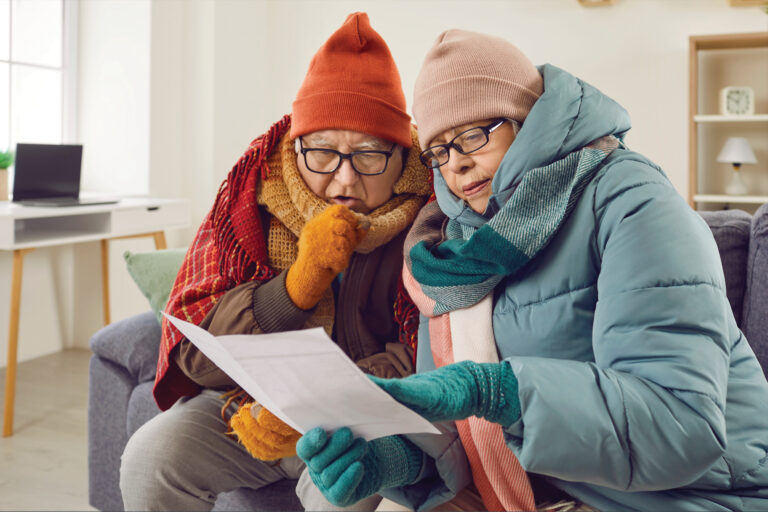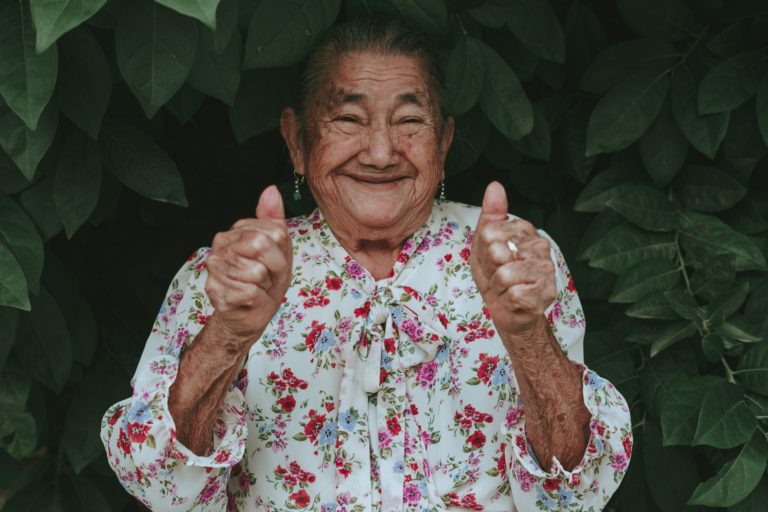
Melanie Kalmar is a journalist specializing in business, healthcare, human interest, and real estate. When not writing, she enjoys spending time with family.
Extreme cold and heat put seniors’ lives at risk. Know which thermostat settings are safe for older adults — and why
Temperature regulation is a serious health concern for older adults, especially when the facilities they live in don’t enable them to control their own thermostats. This proved lethal for three individuals in May 2022 when temperatures in Chicago climbed above 90 degrees. But cold weather can cause issues, too.
Caregivers can do their part to keep seniors safe by understanding the physiological, cognitive, and psychosocial risks to older adults in extreme temperatures. As climate change brings more extreme weather, this awareness can save lives.
Know the recommended hot and cold weather thermostat settings; recognize the signs of distress; learn how to treat temperature-related emergencies before paramedics arrive; and engineer out hazards in the home.
Hot and cold temperatures lead to different health risks. Let’s start with the cold.
Cold weather health risks
“As we age and experience the changes associated with aging, it leaves us more vulnerable to cold,” says Ryan Bartkus, MD, a geriatric medicine specialist with Ascension Alexian Brothers in Elk Grove Village. “The layer of heat-preserving fat below the skin thins out as people age. You have a harder time conserving heat and holding it in.”
Muscle density decreases with age, too. People can lose as much as 50% of muscle mass. “Less active muscles are less likely to preserve and produce heat,” Bartkus says.
This puts older adults at risk for something called cold tolerance. As their body temperature drops, they lose the sensation of being cold and can almost start to feel warm, Bartkus says. They may even start undressing in the cold, because of an unusual sense of being warmer than they are.
As a result, they can develop hypothermia — a dangerous drop in body temperature. They may feel confused or disoriented, make poor decisions, or fall. Additionally, they may have physiological responses to the cold, such as shivering, elevated heart rate, rapid breathing, or an increase in urination.
Loved ones or caregivers watching for these symptoms can intervene. In colder temperatures, layer older adults’ clothes, wrap them in a blanket, and give them a hot drink, Bartkus says.
Avoid alcohol: It can impair their judgment, making them less likely to respond to warning signs that their body is getting too cold.
Hot weather health risks
Older adults have less ability to dispel heat and sweat due to fewer blood vessels in the skin, Bartkus says, and they’re not able to release heat from the core body as well as in their younger years. Watch for signs of distress.
“Usually with high temperatures, when people are having heat cramps or exhaustion or heat stroke, you’ll see changes in mental status,” Bartkus says. “They might become lethargic, dizzy, have seizures or lose consciousness.”
Older adults are also at a high risk for dehydration. By the time they feel thirsty, they’re already in the early stages of it.
Prevent overheating by:
- Choosing cooler times of day to be active.
- Staying hydrated.
- Wearing loose, light clothes.
- Avoiding time in hot cars.
If an older adult becomes overheated, move them to a shady area or cooling center, Bartkus says. Provide water or a sports drink for hydration. Avoid alcohol and caffeine, which can dehydrate people more. If available, place cold packs on their neck, armpits, and groin. Turn on a fan, or bathe them in cool water.
Extreme temperature illnesses
Whether from extreme heat or cold, other factors that put seniors at risk of health issues include:
- Socioeconomic: Older adults with low incomes might keep heat low or air conditioning off to save money on energy bills.
- Cognitive: Older adults with Alzheimer’s disease or dementia might not be aware of their surroundings or sense that they’re hot or cold. They also might not feel thirsty, making them more prone to overheating and dehydration.
- Chronic illnesses: Conditions such as heart and lung diseases can impact the body’s ability to cope with temperature changes.
- Medications: Beta blockers, often used to manage blood pressure and heart problems, can blunt the body’s response to extreme temperature situations. Diuretics, like those used for heart conditions, can deplete hydration during a heatwave. And anticholinergics, such as Benadryl, can also cause dehydration. The key to making sure your loved ones are safe during extreme weather events is to check in on them. But that’s not all you can do.
Families should agree on a regular time to check in with seniors,to make sure their living space is at a healthy temperature. Ideally, the thermostat should be easy to read and set between 68 degrees and 74 degrees year-round, to prevent the person from becoming too cold, says Lauren J. Gleason, MD, a geriatrician and assistant professor at the University of Chicago Medicine.
“You want to avoid temperatures lower than 65 degrees,” Gleason says. “We worry more about the lower temperatures for older patients. When body temperature drops below 95 degrees from being in a cool room, it can cause many problems, such as heart attack, kidney problems, liver damage, and worse. It can put them at risk of hypothermia or death.”
If you notice older adults developing symptoms of overexposure to extreme temperatures, call 911. It’s best to intervene early, when a lot can be done to resolve the situation and result in a positive outcome.
Lauren J. Gleason, MD, MPH, a geriatrician and assistant professor at UChicago Medicine, offers these general safety tips when dealing with temperature extremes:
- Avoid space heaters because they can catch fire.
- Forego electric blankets, sheets, or heating pads, all of which can cause burns.
- Place red tape around hot radiators, to remind older adults with cognitive decline not to touch it.
- Set the water heater to 120 degrees Fahrenheit to prevent burns.
- Keep objects away from fans, and plug them in close to an outlet, rather than using an extension cord, which is a tripping hazard.
- Be prepared for emergency responders: Store an extra key outside the house and keep a list of medications, along with doctors’ names and phone numbers, on the refrigerator.






